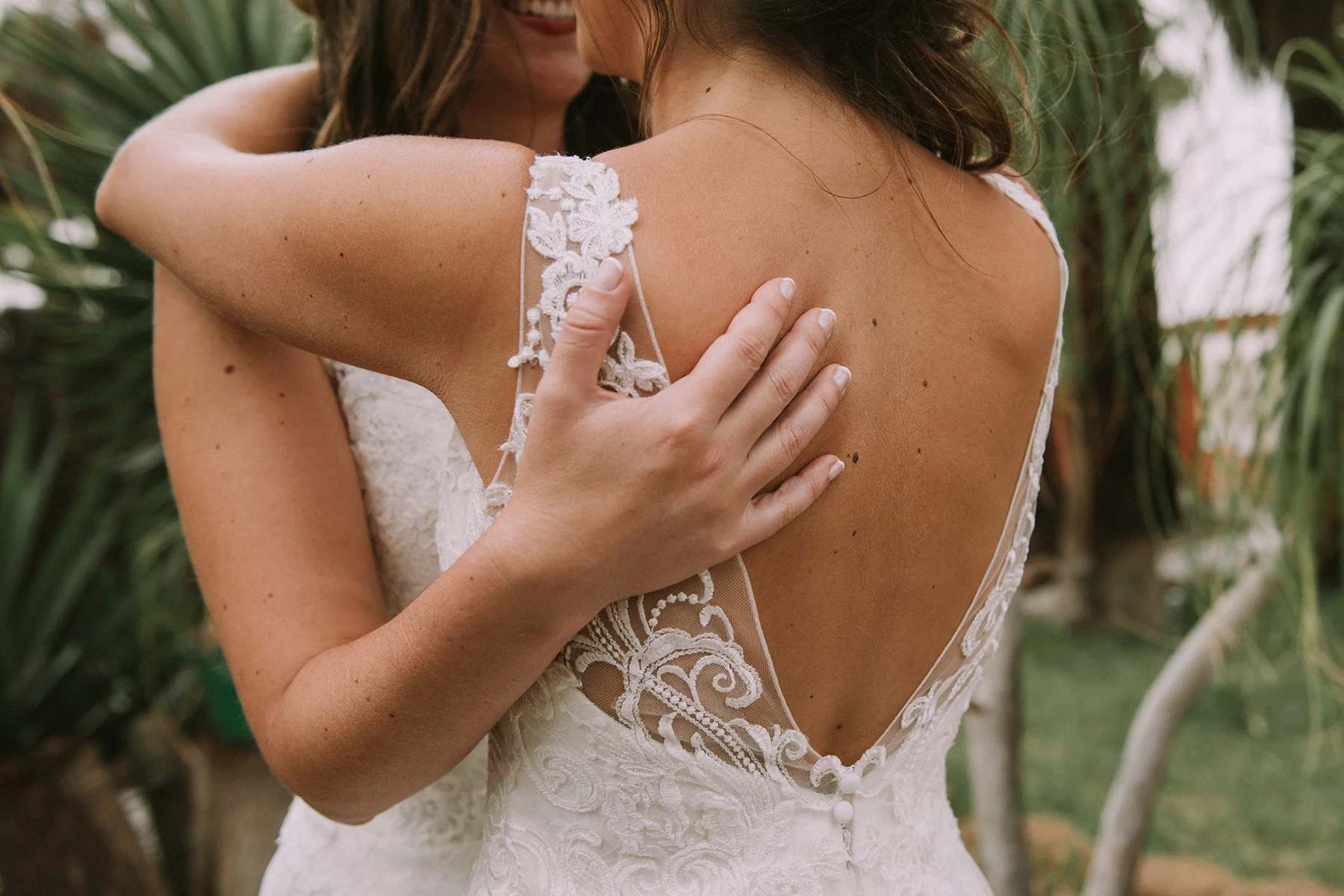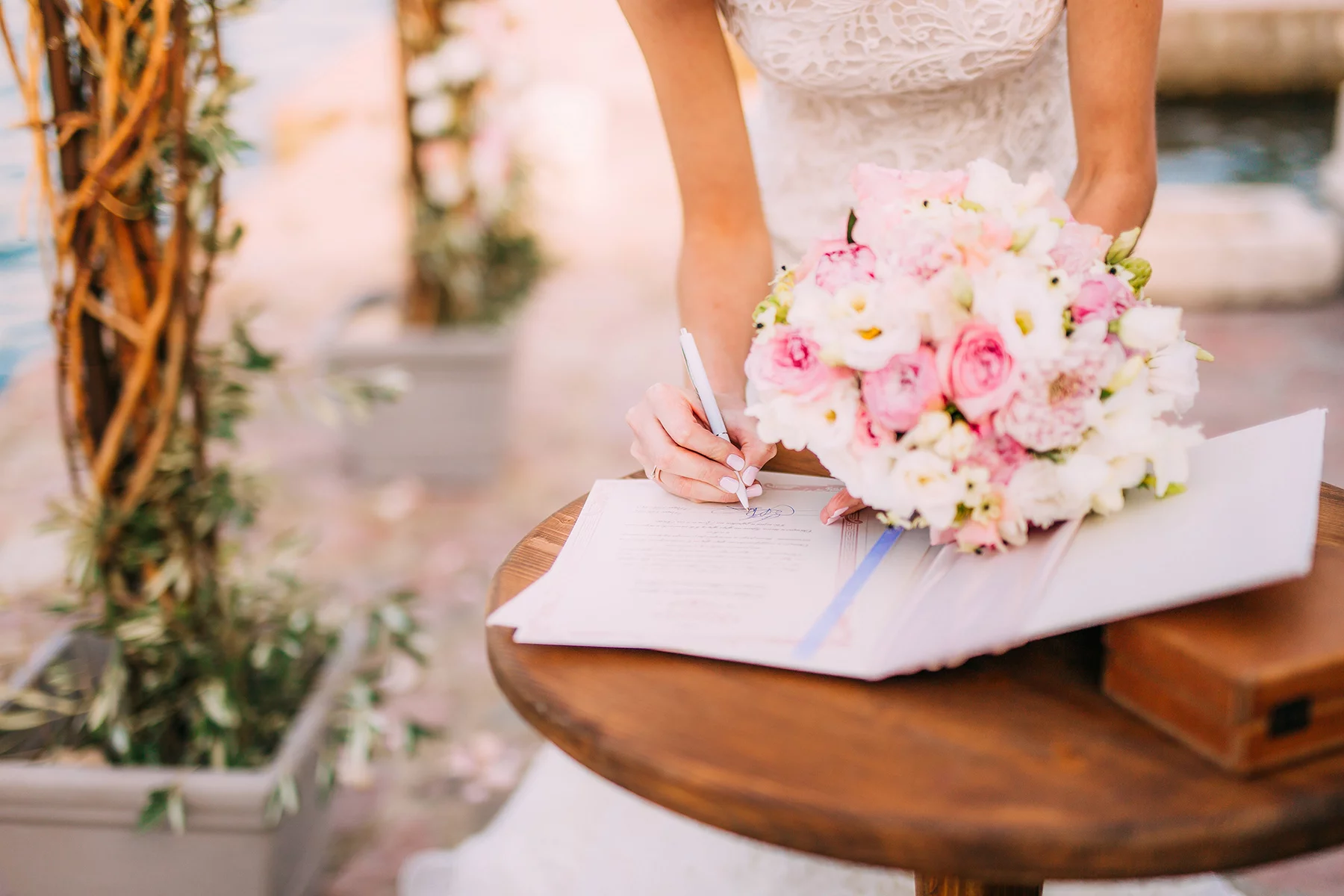Marriage is currently the only form of legal union in Germany and this is protected under the Constitution. Since the introduction of same-sex marriage in October 2017, registered partnerships, either for same-sex or heterosexual couples, ceased to be an option. All same-sex couples who entered into partnerships before 2017 were given the option to convert their partnerships into marriages.
Find out everything you need to know about getting married in Germany and planning your special day, including:
Cigna Global
Enjoy peace of mind while living in Germany with Cigna Global’s long-term international health insurance plans (12+ months). Get tailored coverage, direct billing with many providers, complex case management, and global care on demand, with access to a network of 1.5+ million doctors, specialists, and therapists.
An overview of marriage in Germany
Recent research suggests that marriage is becoming more popular in Germany. Figures from the Federal Statistical Office of Germany (Statistisches Bundesamt Destatis), show that the total number of marriages has steadily increased over the past few years; from 373,655 in 2013 to 416,615 in 2018, an increase of 11.5%.
According to deutschland.de, couples in Germany are also marrying later in life. A total of 407,000 couples tied the knot in Germany in 2017, and they were roughly five years older than wedding couples 25 years ago. On average, women now marry at 31.5 years of age, and men at 34. These figures are the eighth highest in Europe; Sweden ranks number one with 33.3 years for women and 35 for men.
Declining divorce rates
In addition to the rising number of marriages in recent years, data from Destatis also shows that divorce rates are steadily declining. A total of 187,640 marriages ended in 2011, in comparison to 148,066 in 2018; a decrease of around 21%. Marriages also appear to last longer now than in previous decades. Those who split up these days have been together on average nearly 15 years, while couples who separated 20 years ago stayed together on average 12 years.
Gay marriage in Germany
As previously mentioned, same-sex marriage became legal in Germany in October 2017. Since then, more than 10,000 same-sex couples have tied the knot.

According to a survey by German press agency DPA, more than 10,000 same-sex couples got married in the first year after the law changed. Of these couples, 1,056 held their wedding in Cologne, which had proven to be particularly popular for same-sex weddings. The survey also found that more male gay marriages take place in German cities, while female couples tend to get married in smaller towns or villages. You can also discover the most LGBT friendly countries for expats.
The legal requirements for getting married in Germany
To marry in Germany, you have to be at least 18 years old. If you or your partner is not German, there are a few extra things to bear in mind. You must have been living in the locality for at least 21 days before visiting the town hall to give your intention to marry.
Foreigners who are not from the EU cannot usually get married in Germany on a visitor visa. Instead, they will need a visa that is valid for three to six months. If they are marrying a German citizen, they can normally obtain a residence permit.
Planning a wedding in Germany
To begin the marriage process you need to submit an application at the local registry office (standesamt) located in the town hall (rathaus), and give notice of the impending marriage (Antrag auf Eheschlielung).
You then need to make an appointment at the town hall and attend a meeting; here they will explain the process and documentation you need to submit. You should aim to arrange this meeting several months before you intend to marry, to give you both ample time to gather and submit all the required documents.
Ideally, both partners should attend the meeting in person. However, if one partner is unable to attend, the other may go on their own; as long as the absent partner has given them power of attorney to act on their behalf. Make sure to check the opening hours before you visit, as offices are often only open for a couple of hours during the week. After approval, you must marry within six months; otherwise, you will have to start the process all over again.
Necessary documentation and paperwork
The documentation that you must submit in order to get married in Germany varies according to the region. However, generally speaking, you may need to present the following:
- Passports of both partners
- Official Statement of Residency (Meldebescheinigung)
- Original long-form birth certificate with parents’ names (get this translated)
- Birth certificates of any children the couple have had together (get this translated)
- Certificate of No Impediment (CNI) (Befreiung vom Ehefähigkeitszeugnis) (get this translated)
- Affidavit confirming both parties are single (Ledigkeitsbescheinigung)
- Marriage questionnaire (from the registry office)
- Certificate of finality of divorce (if applicable) (get this translated)
- Marriage certificates from any previous marriages
- Death certificate of the previous spouse (if applicable)
- Confirmation of name change (if applicable)
- Financial statement
It is important to know that you must translate all documents into German by a certified interpreter such as lingoking. In addition, the documents must not be older than six months; therefore, you may need to apply for new versions of them.
Bear in mind that when you get married, you will be eligible for different taxes. It’s worth looking into services such as Taxfix or Wundertax to simplify the process.
Getting married in Germany
The process of getting married in Germany can be fairly quick, as couples must tie the knot within six months of receiving their marriage license. Couples have a civil ceremony at a registry office. They can then choose to follow this with a religious ceremony or reception; however, this has no legal effect.

Registry offices usually have several different wedding rooms to choose from, depending on preference and the number of guests that will be attending the ceremony. These offices are usually located in one of the community’s finer buildings, such as a city hall or palace. Germany has many picturesque cathedrals, palaces, and castles that offer wedding arrangements.
Couples can choose to hold the ceremony in a different municipality, but they will need to arrange this with the registry office in the municipality in which they are registered. There will also be additional fees to pay.
A summary of the process
To summarize, the marriage process in Germany goes as follows:
- Visit the town hall (Rathaus) to give the intention to marry (foreigners must have been living in the locality for at least 21 days);
- Have your documents translated into German by a certified interpreter;
- Submit documents to the registry office;
- Organize the wedding ceremony to take place within the following six months;
- Notify the registrar of the names of any witnesses you wish to attend at least eight days before the wedding.
The cost of getting married in Germany
Regular weddings in Germany commonly cost between €10,000 and €20,000. As a general rule of thumb, you can expect a wedding for 60 guests to cost around €13,000.
Some people opt to use a wedding planner to organize their wedding day. This can be more expensive, but if there is a language barrier it can make the process a lot easier for expats.
Venue and catering
Generally speaking, most of the wedding budget will go towards the venue and catering. Fees for the venue can vary, for example, the cost to hire a small town hall is much cheaper than a castle. For a more exclusive venue, you could pay up to €2,000. Other places might be free if you are paying them to provide catering.
A wedding menu or buffet tends to cost at least €35 per person. Drinks will often cost an additional €10-25 per person. Then there is the wedding cake, which on average costs between €150 and €300.
Wedding dress and flowers
Another large expense is often the bride’s dress, but again, prices vary a lot depending on whether you opt for a designer gown or something cheaper from the high street. On average, the bride’s dress, accessories, and jewelry cost between €1,000 and €5,000. This doesn’t include wedding rings, which are usually between €500 and €2,000 each.
You will usually have to set aside around €500 for flowers; this can include decorations for the venue, cars, table decorations, and the bride’s bouquet.
Finally, couples need to consider finishing touches like wedding stationery (for invitations and place settings), DJs, and photographers. A decent photographer could set you back up to €2,500 in Germany, and DJs can cost a similar amount, especially if you want to secure a good one.
Registrar and interpreter
One unavoidable expense is the registrar’s fee to marry you, which is usually around €65.
Both partners must understand what is taking place at the wedding ceremony; this is a legally binding contract. Therefore, if you or your partner do not speak fluent German, you will need to arrange to have a certified interpreter present at the ceremony. The translator cannot be one of the betrothed. Your local registry office can help you find someone suitable or you can book the services of a professional interpreter through lingoking.
The best wedding locations in Germany
Traditionally, couples in Germany married in their local church. However, now there is an increasing trend among young people to look for quirky wedding venues in which to hold their ceremony.

These often include destination weddings on far-flung beaches and even at theme parks. Many couples even tie the knot at the Cologne Chocolate Museum and the home stadium of Dynamo Dresden.
Then, of course, there are the fairy tale weddings at Germany’s picturesque castles. Some of the most popular choices are Burghausen Castle, Neuschwanstein Castle, and Frankenstein Castle.
German wedding traditions and customs
German weddings have many customs that expats should probably be aware of. The night before the wedding, for example, guests attend a raucous party called a polterabend. Everyone takes turns breaking porcelain plates to wish the new couple luck.
The bride and groom may also have to take part in the baumstamm sägen, a ritualistic sawing of logs. The act of sawing at the same time shows that the couple can work together and give their marriage endurance.
And the fun doesn’t stop there, either. On the wedding day, the groomsmen traditionally kidnap the bride after the ceremony and take her to a bar. It is then up to the groom to track her down. But there’s a price to pay when he finds her; he must pay the entire bill his groomsmen racked up while they were waiting for him to arrive.
Friends of the bride and groom often play pranks on the couple, too. This can include stunts like filling the room with balloons or hiding alarm clocks to wake them the next morning.
When it comes to wedding rings, it’s tradition to wear the engagement ring on the left-hand ring finger, and the wedding ring on the right hand. Find out more in our guide to wedding ring traditions from around the world.
Many German wedding traditions are familiar to expats. For instance, it’s still common for the bride to wear white (although it’s increasingly popular to wear colors). The bride’s father also walks her down the aisle, and the newlyweds kick off the celebrations with the first dance. Couples also cut the wedding cake at midnight, and the bride throws her bouquet; the person who catches it marries next – so, expect some competition!




